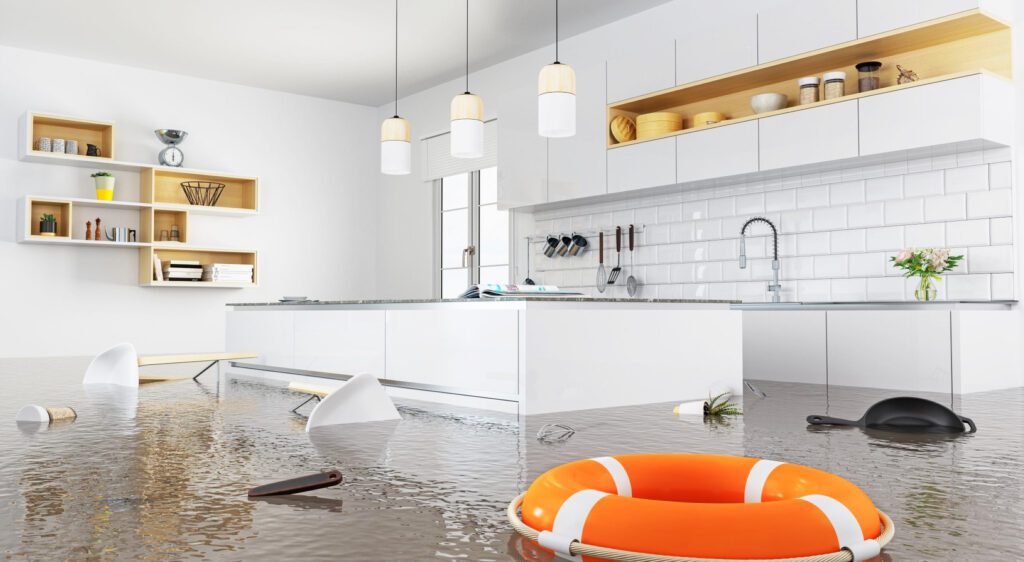Here are some examples of how water damage typically occurs:
-
Leaking Hoses
Hoses are the most common source of water damage due to accidents. When a hose leaks, it will cause water to pour onto the floor, walls and ceilings. If not sealed properly, this will cause mould to grow on the floor’s surface, which is very harmful to your health.
-
Water Pipes or Faucets Leaks
Water pipes or faucets can also leak if they are not installed correctly on the house. That will cause water to pour out of these pipes, and it won’t get to the outside, which causes water damage.
-
Sink Not Flushing
In addition, a blocked drain within your home can pose a problem. That will cause the sink to overflow and then not be able to clean itself. Thus, it can cause mould and mildew to grow.
-
Frozen Pipes
If your pipes are frozen during cold winter temperatures, they will become brittle and crumble. When that happens, water will leak onto the ground or into your house.
-
Too Little or No Ventilation
Make sure that the vents on your house are opening up properly. Otherwise, water can accumulate on the floor and the walls and ceilings of the house.
These are just a few of the most common ways in which water damage can occur. See how they affect your house to prevent water damage from occurring in the future.
WHAT TO DO TO AVOID WATER DAMAGE
You can take steps to prevent water damage from occurring in your house. These include:
1) Get a sump pump. A sump pump was designed to remove water from the basement and other areas in your house. It keeps this area dry and prevents damage from occurring.
2) If your walls are not waterproof, get waterproof paper installed. That will prevent water damage from occurring inside your home’s walls. If you do not have wall insulation, see if they will apply it to the house’s walls.
3) Install a dehumidifier in your house, if available. It keeps the air in your house dry, thus preventing mould from growing on the walls of the house.
4) If you have an oil heater or gas furnace, ensure it is turned on when you are not home. That will prevent water from getting into the furnace by melting the snow on top of it.
5) Insulate the roof of your house. It keeps out water that may fall onto the roof during heavy rains, which can cause water damage to occur in the house.
6) Seal all cracks in the basement or hallways. If there are cracks, water could leak into them and cause water damage to occur inside your home.
7) Invest in a water vacuum. A water vacuum will suck up the excess water that is leaking onto your floor. This device will save you a lot of time and money, as it prevents damage from occurring to your home.
8) Buy a hose pipe with a filter on it. That way, it can filter out any small debris or dirt before it enters the hose and ends up falling onto the walls and ceilings of the house.
9) If you have a lawn sprinkler system, make sure that you turn it off when not in use. Also, ensure that it is not leaking anywhere. That will cause the water to spill out of the sprinklers and onto your walls.
Water damage can occur very quickly if it is not taken care of properly. Unfortunately, people do not realise how bad water damage is until they experience it first-hand.
If you want to prevent this from occurring to you, make sure that you do all of these things to prevent water damage from occurring to your home. That will prevent water from getting into your mouth or eyes and causing you harm.
It is also vital to go through these steps even if you don’t think that your house is in bad shape. This way, should the need arise, you will know what to do in such a situation and prevent it from happening.
IN CONCLUSION
Water damage is the leading risk in every house. However, there are precautions that you can take to prevent it from occurring in your house. While water damage can occur in several ways, there are steps that you can take to prevent it from occurring.
Now that you have read the article, you should be well aware of how detrimental water damage is for your house. If any of these steps are not being followed in your house, water damage may occur in your home.
Take note that even if you do evRezerything correctly to prevent water damage, it is still possible that the need may arise, and you need to call an expert. Therefore, it is crucial to prepare well ahead of time to avoid problems.
Thanks for reading. You can share this article on your favourite social media site.







